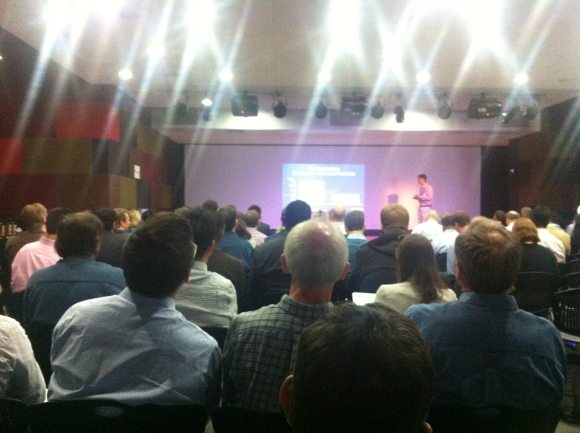In partnership with the Silicon Valley Community Foundation, I hosted my second Teacher Tech Talk event yesterday which focused on how some schools and educators are using Google Apps for Education (GAFE). Rushton Hurley, a member of the first cohort of Google Certified Educators and Founder/ED of NextVista.org, kicked off the event highlighting some of his favorite aspects of GAFE but more importantly shared an inspiring message for how educators should approach integrating technology.
“It is impossible to stay on top of current technology solutions… So don’t worry about it! Find what works best for you and use it in a way that allows you to tap into your inner explorer.”
Kim Brown and Tim Sato from Portola Valley School District shared specifics around how they deployed the Google Engine and Chris Buja from the startup, Hapara (fresh out of Imagine K12,) provided an overview of how their Teacher Dashboard makes it dead-easy for teachers to manage and optimize the GAFE experience across countless students and documents.
If you are interested in learning more about Google Apps for Edu, I recommend checking out the upcoming GAFE Summit July 12/13 in Santa Clara and reading Richard Byrne’s (FreeTech4Teachers) GAFE Guide.
If you are an educator and looking to get plugged into the edtech startup scene, check out the Launch EDU conference June 12-13th at Microsoft in Mountain View. Please email Megan Dickey at megan@launch.co for a free ticket.
Thanks to all who attended and helped spread the word. It has been truly energizing to see the growing interest in this community, and brainstorming ways to bridge the educator and edu startup worlds. Keep an eye out for details for the next Teacher Tech Talk event coming up in July all about Formative Assessments in the Cloud.







